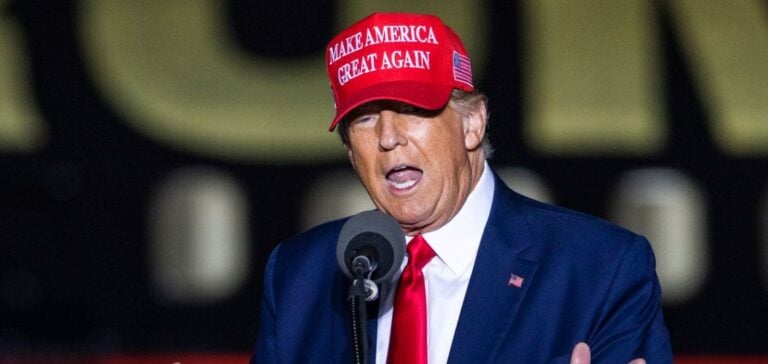Donald Trump’s recent declaration to impose 25% tariffs on all imports from Canada and Mexico starting on his first day in office in 2025 has cast uncertainty over the U.S. oil industry. Although these measures are framed as a negotiation tactic, experts are already debating the economic implications for the energy sector.
In July 2024, the U.S. imported a record 4.3 million barrels per day (b/d) of Canadian crude oil, according to the U.S. Energy Information Administration (EIA). These imports, representing nearly 50% of foreign crude consumed in the U.S., are essential for the operations of American refineries. If the new tariffs were enacted without exemptions, they could significantly raise costs for these facilities, potentially leading to higher gasoline prices for American consumers.
A Controversial Negotiation Tool
Donald Trump’s approach of announcing drastic measures as a starting point for trade negotiations is not new. In 2026, the United States-Mexico-Canada Agreement (USMCA), which replaced the North American Free Trade Agreement (NAFTA), will undergo a mandatory review. Trump’s tariff threats could serve as leverage to secure concessions within this framework.
However, critics are already highlighting the risks associated with this strategy. “It’s a pressure tactic that, if implemented, could seriously disrupt the energy market,” explained William Reinsch, senior advisor at the Center for Strategic and International Studies. According to him, exemptions for energy products, particularly crude oil and refined products, would be necessary to limit the economic fallout.
Industry Advocates for Free Trade
U.S. oil and gas industry stakeholders have voiced their opposition to protectionist measures that could increase supply costs and reduce the sector’s competitiveness. Scott Lauermann, spokesperson for the American Petroleum Institute (API), emphasized the importance of the energy partnership with Canada and Mexico, stating, “Maintaining free trade is crucial for North American energy security and U.S. consumers.”
American refineries, particularly in the PADD 2 region (Midwest), rely heavily on Canadian crude, a source difficult to replace due to its specific composition. According to Bob McNally, president of the Rapidan Energy Group, a 25% tariff would lead to higher pump prices, especially in Midwestern states, exacerbating economic pressures on households.
A Burdensome Exemption Process
Although exemptions are deemed likely, their implementation remains a contentious issue. Companies would need to navigate a complex and costly process to obtain waivers, which might discourage some from pursuing them. “The exemption process is often perceived as an additional burden with a high rejection rate,” said Josh Zive, legal expert at Bracewell LLP.
For now, observers hope that consultations between the energy sector and the Trump administration will prevent these tariffs. Nevertheless, the only certainty lies in the uncertainty surrounding future U.S. trade policies, as companies prepare for a variety of scenarios.





















